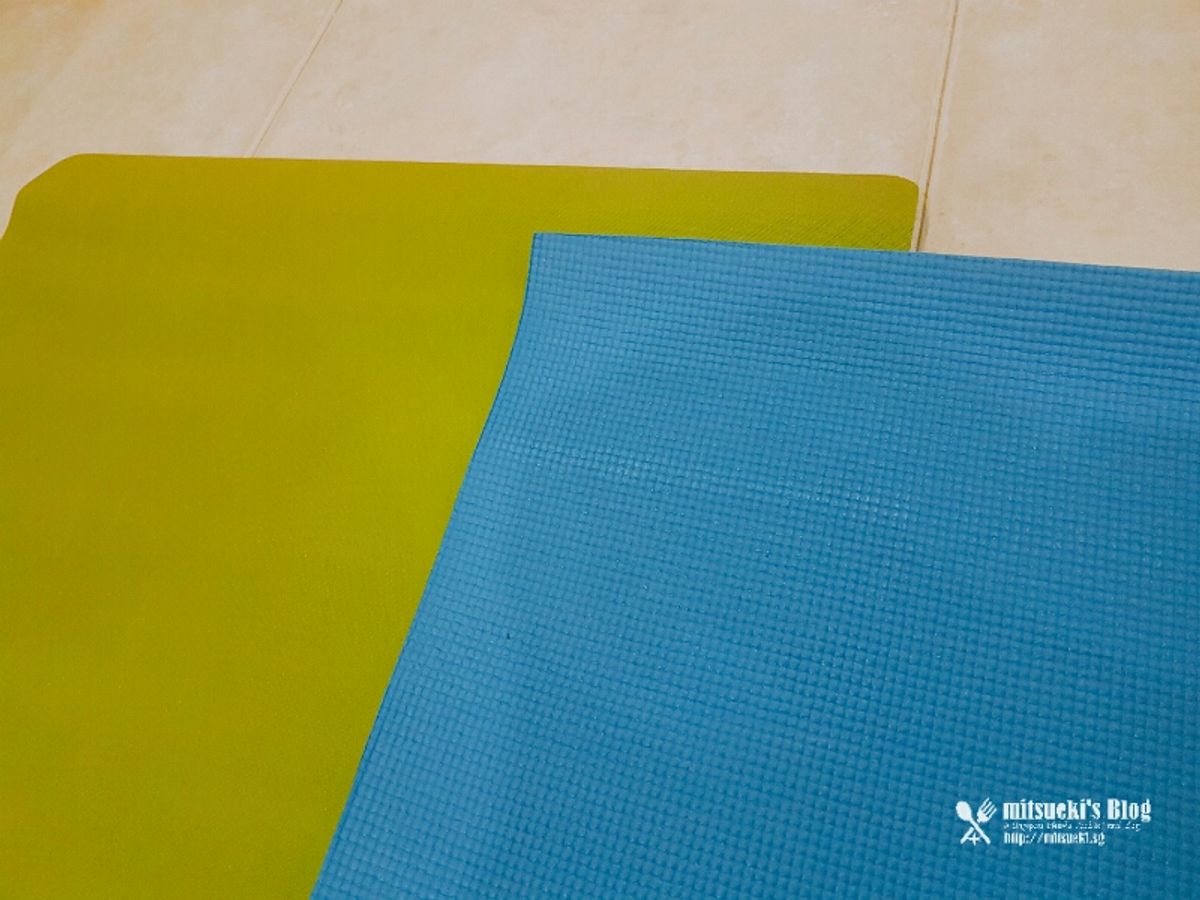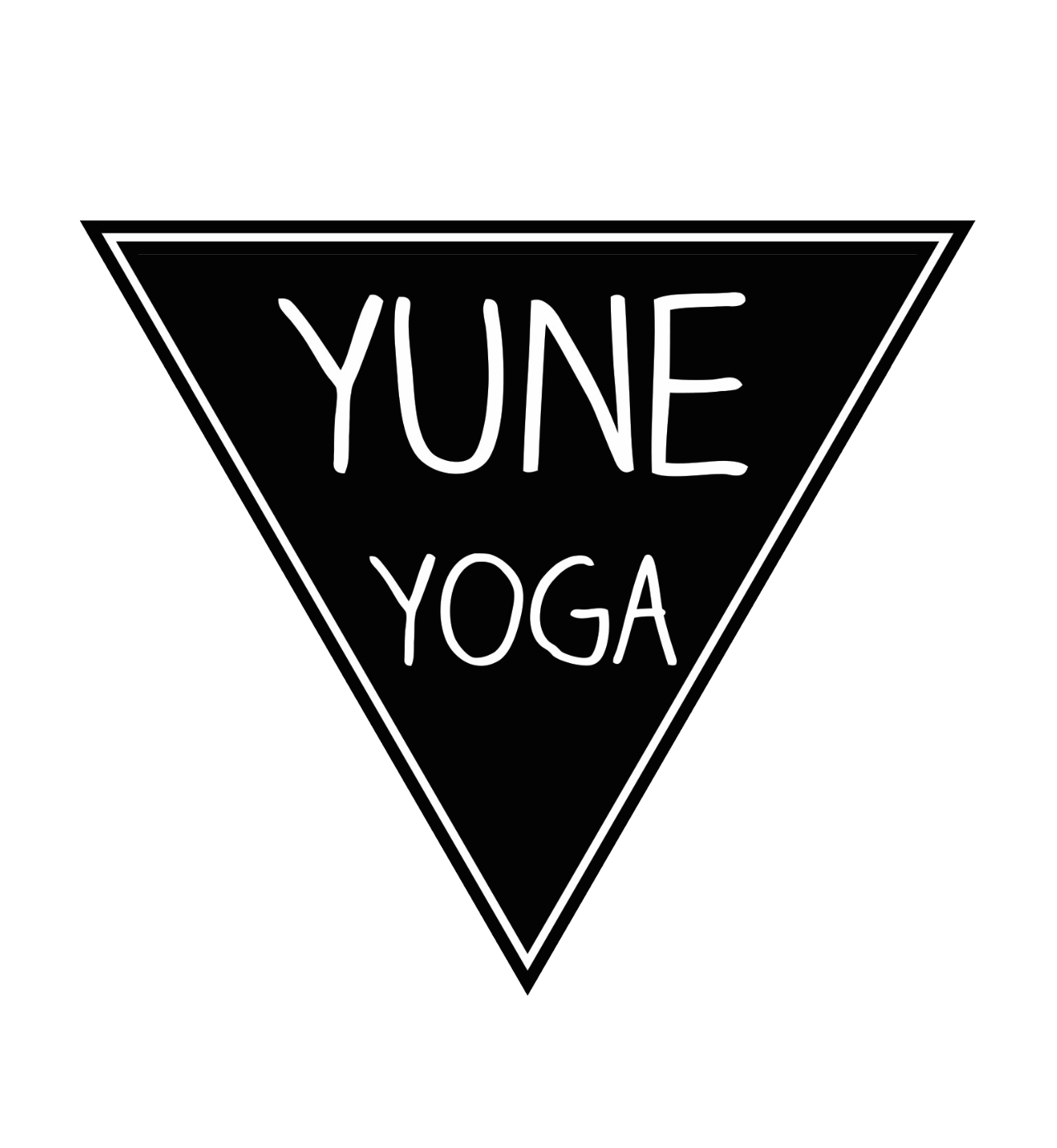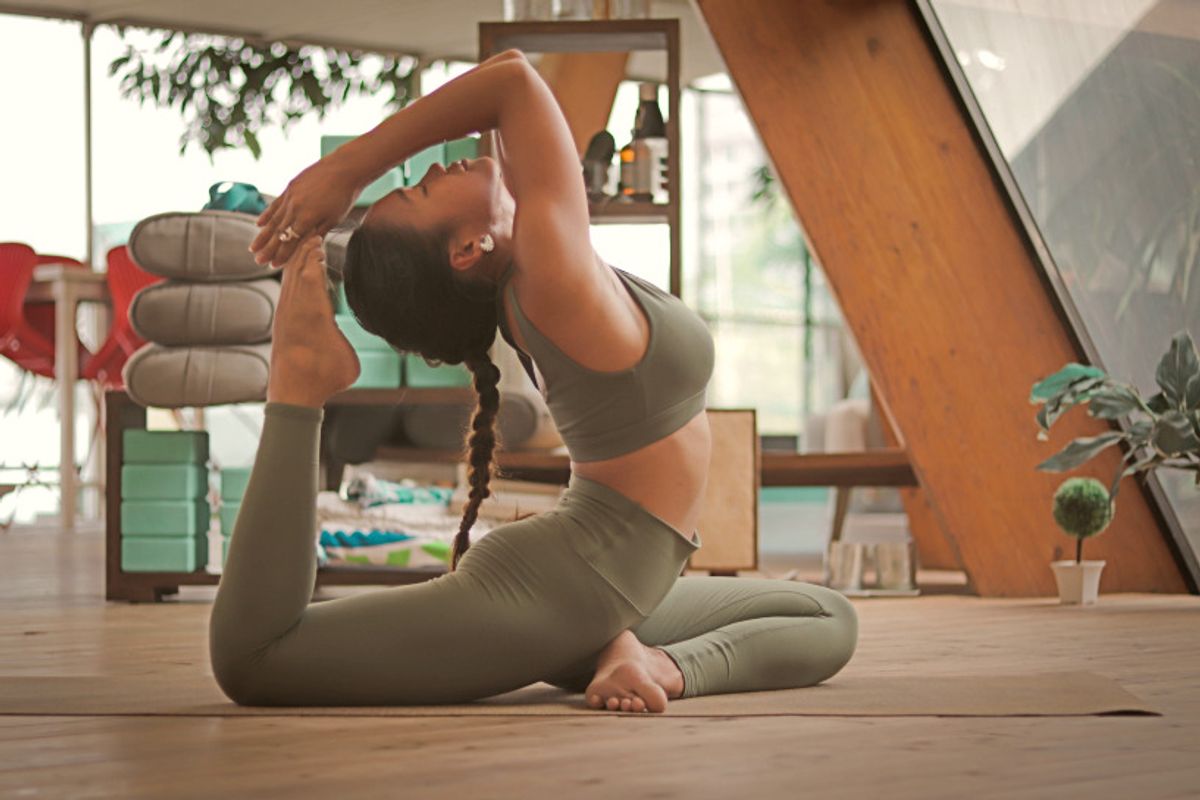
Maximize Comfort: Finding the Perfect Thick Yoga Mat for Your Practice
Embarking on a yoga journey invites the opportunity to enhance physical and mental well-being. A pivotal element in this quest is the selection of a suitable yoga mat, with thickness playing a crucial role in comfort and performance. This article delves into the myriad advantages of thick yoga mats, identifies essential features to consider when choosing one, reviews top options available in the market, offers guidance on integrating a thick yoga mat into your routine, and provides insights on where to purchase the ideal mat for your practice.
Key Takeaways
- Thick yoga mats provide superior cushioning and joint support, which can prevent injuries and enhance comfort during practice.
- When selecting a thick yoga mat, important features to consider include material durability, mat density, size, portability, and eco-friendliness.
- Different types of thick yoga mats, such as those made from memory foam, natural rubber, or synthetic blends, cater to varying preferences and needs.
- Incorporating a thick yoga mat may require adjustments in technique and regular maintenance to ensure longevity and optimal performance.
- The best thick yoga mats can be found through various outlets, including online retailers, specialty yoga stores, and eco-conscious shopping options.
Understanding the Benefits of Thick Yoga Mats
Cushioning and Joint Support
Thick yoga mats are renowned for their superior cushioning, which plays a crucial role in protecting your joints during practice. The extra padding helps to absorb impact and reduce the strain on your knees, wrists, and ankles, making it an ideal choice for practitioners with joint concerns or those engaging in intense workout sessions.
Comfort is not just a luxury; it's a necessity for a sustainable yoga practice. A thick mat ensures that you can maintain poses for longer periods without discomfort, allowing for a deeper and more focused session.
- Absorbs impact
- Reduces strain on joints
- Enhances pose sustainability
A thick yoga mat can transform your practice by providing the necessary support where it matters most.
When selecting a mat, it's important to balance cushioning with stability. While a plush surface is gentle on the body, too much softness can undermine balance in standing poses. Therefore, finding the right thickness that offers both comfort and stability is key to a fulfilling yoga experience.
Stability and Balance
While a thick yoga mat provides ample cushioning, it is also essential for it to offer proper stability and balance during your practice. A mat that is too soft can lead to instability, especially in standing and balancing poses where a firm foundation is crucial.
- Look for a mat with a textured surface to enhance grip.
- Ensure the mat's thickness does not compromise your connection to the floor.
- Test different mats to find one that supports both cushioning and stability.
The right balance between softness and firmness in a yoga mat can significantly improve your practice, making each pose more effective and enjoyable.
Insulation from Cold Floors
Practicing yoga in a chilly environment can be an uncomfortable experience, but a thick yoga mat can serve as a barrier between you and the cold ground. Thick mats provide insulation, keeping your body warm and allowing you to focus on your practice without the distraction of discomfort.
Insulation is not just about warmth; it also contributes to overall comfort and can enhance your endurance during longer sessions. Here's how different mat thicknesses compare in terms of insulation:
- 1/4 inch (6 mm): Standard thickness, minimal insulation
- 1/2 inch (12 mm): Increased insulation, ideal for cold floors
- 3/4 inch (20 mm): Maximum insulation, but may affect stability
When selecting a mat, consider the typical temperature of your practice space. A thicker mat can make a significant difference in keeping you comfortable on cold days.
Key Features to Look for in a Thick Yoga Mat
Material and Durability
When selecting a thick yoga mat, the material and durability are crucial factors to consider. A high-quality mat can withstand regular use and resist wear and tear, ensuring a longer lifespan and better value for money.
PVC, or polyvinyl chloride, is a popular material for its durability and ease of cleaning. However, for those seeking eco-friendlier options, TPE (thermoplastic elastomer) and natural rubber are excellent alternatives that offer both resilience and environmental benefits.
- PVC: Easy to clean, durable, but not eco-friendly
- TPE: Eco-friendlier, good durability, moderate cushioning
- Natural Rubber: Eco-friendly, excellent grip, may wear faster
Remember, the longevity of your yoga mat not only depends on the material but also on how you care for it. Regular cleaning and proper storage will significantly extend the life of your mat.
Density and Comfort
When selecting a thick yoga mat, the density of the material is a critical factor that contributes to overall comfort. A higher density mat will provide better support and resilience, ensuring that the mat retains its shape and cushioning over time. However, it's important to strike a balance, as mats that are too dense can be less forgiving and may not offer the plush feel some practitioners prefer.
The ideal thick yoga mat should have a density that complements your practice style and comfort needs.
- For restorative or therapeutic yoga, look for a mat with a softer, more plush density.
- Power or Vinyasa practitioners might prefer a firmer mat that offers stability during dynamic movements.
Remember, the right density can enhance your practice by providing the necessary support without compromising on comfort.
Size and Portability
When selecting a thick yoga mat, size does matter. A mat that's too small can restrict your movement, while one that's too large can be cumbersome to transport. Optimal mat dimensions should allow for a full range of motion during your practice.
For yogis on the go, portability is a key consideration. A mat that's lightweight and can be easily rolled or folded makes transitioning from home to studio or taking your practice outdoors hassle-free. Some mats come with carrying straps or bags, which can be a significant convenience factor.
Remember, the goal is to find a balance between ample cushioning and practical portability.
Here's a quick reference for typical yoga mat sizes:
- Standard: 68 x 24 inches
- Extra Long: 72 x 24 inches
- Extra Wide: 74 x 30 inches
Weight and foldability are also crucial for yogis who travel or have limited storage space. Mats that are too heavy can become a burden, especially if you're walking or biking to class.
Eco-Friendliness and Non-Toxicity
When selecting a thick yoga mat, the impact on the environment and your health should not be overlooked. Choose mats made from sustainable resources like natural rubber or jute, which are both renewable and biodegradable. These materials are often free from harmful chemicals, ensuring that your practice is not only comfortable but also conscientious.
- Look for certifications such as OEKO-TEX or ecoYoga, which guarantee that the mats are produced without toxic substances.
- Consider the company's sustainability practices, including their carbon footprint and waste management policies.
It's essential to find a balance between a mat that supports your practice and one that aligns with your ethical values. By opting for eco-friendly options, you contribute to a healthier planet and a more mindful practice.
Top Thick Yoga Mat Reviews
Memory Foam Yoga Mats
Memory foam yoga mats are renowned for their exceptional comfort and support. These mats are particularly beneficial for yogis with sensitive joints or those who enjoy longer meditation sessions. The high-density memory foam contours to your body, providing a personalized cushioning effect that can greatly enhance your practice.
Durability is a key factor when considering a memory foam yoga mat. While they offer superior comfort, they can be susceptible to wear and tear if not properly maintained. It's important to look for mats that have a protective layer or are designed with high-quality, resilient foam to ensure longevity.
- High-density memory foam for personalized support
- Ideal for sensitive joints and extended meditation
- Protective layer for increased durability
When integrating a memory foam yoga mat into your routine, be mindful of the mat's thickness. A mat that is too thick can impede your connection to the floor, affecting balance in standing poses.
For those seeking guidance on the best options available, consider the insights from Outdoor Gear Lab's "The 7 Best Yoga Mats of 2024", which highlights top picks after extensive testing.
Natural Rubber Yoga Mats
Natural rubber yoga mats are a popular choice among yogis seeking a balance between eco-friendliness and performance. These mats are often praised for their excellent grip and durability, making them suitable for intense practices. However, they can be on the heavier side, which is something to consider if you prioritize portability.
Durability is a key factor when choosing a natural rubber yoga mat. They are designed to withstand the wear and tear of regular use, and their resilience makes them a long-term investment for your yoga practice. Here's a quick comparison of some popular natural rubber yoga mats:
| Brand | Weight | Thickness | Price |
|---|---|---|---|
| IUGA | 2.2 lbs | 5mm | $$$$ |
| Jade | 4.5 lbs | 5mm | $$$$ |
| Manduka | 7 lbs | 6mm | $$$$$ |
When considering a natural rubber yoga mat, think about the balance between cushioning and stability. A thicker mat can provide more support for your joints, but it may also affect your sense of connection to the floor.
Remember to factor in the weight of the mat, especially if you travel frequently or walk to your yoga studio. The IUGA Pro Non Slip Yoga Mat stands out as a lighter option, which can be a significant advantage for some practitioners.
Synthetic Blend Yoga Mats
Synthetic blend yoga mats offer a unique combination of durability and comfort, making them a popular choice for many practitioners. These mats typically feature a mix of materials such as PVC, PER, or TPE, which are engineered to provide the resilience needed for intense practices while still being lightweight.
The versatility of synthetic blend mats makes them suitable for a variety of yoga styles. They are often favored for their ease of cleaning and maintenance, which is a significant advantage for those who practice frequently.
- Easy to clean and maintain
- Resistant to wear and tear
- Provides a balance of grip and cushion
When considering a synthetic blend yoga mat, think about your personal practice needs and environmental preferences.
While these mats are not always the most eco-friendly option, many brands are making strides to reduce their environmental impact. It's important to research and choose a mat that aligns with your values and practice requirements.
Incorporating a Thick Yoga Mat into Your Practice
Adjusting Your Technique
When incorporating a thick yoga mat into your practice, it's essential to adjust your technique to accommodate the extra cushioning. A thicker mat can affect the way you perform certain poses, particularly those that require a strong connection to the ground. For instance, in balance poses, you may need to spread your toes more to create a wider base of support.
Balance is key when transitioning between poses on a thick mat. Here are a few tips to maintain stability:
- Press firmly into the mat with your palms and the balls of your feet.
- Engage your core muscles to create stability.
- Align your wrists, elbows, and shoulders in poses where your hands are in contact with the mat.
Remember, the goal is to feel supported by the mat, not hindered by it. Make subtle adjustments to find the sweet spot where comfort and performance meet.
While a thick yoga mat provides additional comfort, it's important to stay mindful of your body's alignment to prevent injury. Take the time to feel out the differences and modify your practice as needed.
Maintaining Your Mat
Proper maintenance of your yoga mat is crucial to extend its lifespan and ensure it continues to provide the support and comfort you need. Regular cleaning is essential, as it prevents the buildup of dirt, oils, and odors that can degrade the material over time. For an eco-friendly approach, consider natural cleaning solutions.
To clean your mat without harsh chemicals, start by preparing a mixture of water and gentle soap. Submerge your mat in the solution, using a weight to keep it fully immersed. After soaking for 10 to 15 minutes, thoroughly rinse the mat with clean water and allow it to air dry. This simple routine will keep your mat fresh and hygienic.
Remember, never use abrasive cleaners or brushes on your thick yoga mat, as they can damage the surface and reduce its cushioning effect.
Storing your mat correctly is also important. Roll it up loosely and store it in a cool, dry place away from direct sunlight. Avoid folding the mat, as this can create creases and affect its flatness when in use.
Combining Mats for Optimal Performance
For yogis seeking the ultimate practice experience, combining different types of yoga mats can be a game-changer. A thick yoga mat serves as a foundational layer, offering unparalleled cushioning and support. On top of this, a thinner, stickier mat can be added for improved grip during more dynamic poses.
- Start with a high-density, thick yoga mat as your base.
- Layer a thinner, high-tack mat on top for additional stability.
- Ensure both mats are aligned and secure to prevent slipping.
By strategically layering mats, practitioners can tailor their surface to the day's practice, whether it requires more cushioning for restorative poses or a firmer grip for standing sequences.
Remember, the goal is to enhance your practice, not to complicate it. Simplicity and functionality should guide your choices. Experiment with different combinations to find what works best for your body and style of yoga.
Where to Buy the Best Thick Yoga Mats
Online Retailers and Marketplaces
When searching for the perfect thick yoga mat, online retailers and marketplaces offer a vast selection to suit every yogi's needs. From the convenience of comparing prices to reading customer reviews, these platforms provide a streamlined shopping experience. Look for trusted sellers or those with high ratings to ensure quality and authenticity of the yoga mats.
- Amazon, eBay, and Walmart are popular choices with extensive catalogs.
- Specialty fitness websites may offer exclusive products not found elsewhere.
- Online deals and discounts can make high-quality mats more affordable.
Remember to check the return policy and warranty information before making a purchase to secure your investment.
One example of a product you might find is the 'Large Yoga Mat Thick Workout Mats' from Kohl's, which features a variety of colors, is made from PVC, and measures 6' x 4'x 8mm. It's a substantial mat, weighing in at 13.5 lbs, and boasts a double-sided non-slip surface.
Specialty Yoga Stores
When seeking a personalized shopping experience, specialty yoga stores offer a unique advantage. These stores often provide expert advice and tailored recommendations based on your specific yoga practice and needs. The staff usually have a deep understanding of the products and can help you find a thick yoga mat that aligns with your comfort and performance goals.
Specialty yoga stores may carry exclusive brands or eco-friendly options not found in larger retail chains. Here's a list of benefits you might expect:
- Personalized customer service
- High-quality, niche brands
- Opportunity to feel and test different mats
- In-store yoga mat classes and workshops
Remember, the atmosphere of a specialty store can greatly enhance the shopping experience, making it more than just a purchase but a step towards refining your practice.
Eco-Conscious Shopping Options
When seeking an eco-friendly yoga mat, it's essential to consider the environmental impact of your purchase. Opting for mats made from sustainable materials can significantly reduce your carbon footprint. Look for mats labeled as biodegradable, made from natural rubber, or constructed with recycled materials.
Many eco-conscious brands offer thick yoga mats that don't compromise on quality or comfort. Here's a list of features to consider when shopping for an eco-friendly option:
- Biodegradability and natural materials
- Certifications for sustainability (e.g., OEKO-TEX, GOTS)
- Packaging that is recyclable or minimal
Remember, a truly eco-conscious choice extends beyond the mat itself to the practices of the company producing it. Investigate their commitment to sustainability in all aspects of their business.
For those who prefer the convenience of online shopping, platforms like Amazon.com offer a variety of eco-friendly yoga mats. For instance, the UMINEUX Yoga Mat is an extra thick option that boasts non-slip properties and eco-friendly TPE construction, complete with a carrying sling and storage bag for easy transport.
Looking for unparalleled comfort and support during your yoga practice? Discover the ultimate selection of thick yoga mats at YUNE YOGA! Our mats are designed to cater to all your needs, ensuring a stable and cushioned foundation for your asanas. Don't settle for less; elevate your yoga experience with our top-quality mats. Visit our website now to find your perfect match and enjoy free shipping on all orders!
Conclusion: Embrace the Cushion for Your Yoga Journey
In the quest for the ultimate yoga experience, a thick yoga mat can be a game-changer, providing the cushion and support needed for a comfortable practice. Whether you're a beginner seeking extra padding or an experienced yogi looking to protect your joints, the right thick yoga mat can enhance your practice. Remember to consider material, thickness, density, and texture when making your choice. With the insights from this article, you're now equipped to find the perfect thick yoga mat that aligns with your personal needs and preferences, ensuring a serene and supportive foundation for your yoga journey.
Frequently Asked Questions
What are the main benefits of using a thick yoga mat?
Thick yoga mats provide enhanced cushioning and joint support, which can help prevent injuries and discomfort during practice. They also offer better stability and balance, as well as insulation from cold floors.
How thick should a yoga mat be for maximum comfort?
For maximum comfort, a yoga mat should be at least 1/4 inch thick. However, some practitioners may prefer mats that are up to 1/2 inch thick for extra cushioning, especially if they have sensitive joints or practice on hard surfaces.
What materials are best for thick yoga mats?
Thick yoga mats can be made from various materials, but memory foam, natural rubber, and synthetic blends are popular choices. The best material for you depends on your personal preferences, such as cushioning, eco-friendliness, and durability.
Can a thick yoga mat improve my practice?
Yes, a thick yoga mat can improve your practice by providing a comfortable, stable base that allows you to focus on your poses without distraction. It can also reduce fatigue and strain on your body.
How do I clean and maintain a thick yoga mat?
To clean a thick yoga mat, wipe it down with a damp cloth and a mild detergent or a yoga mat cleaner after each use. Allow it to air dry completely before rolling it up. Avoid using harsh chemicals and keep it out of direct sunlight to prevent degradation.
Where can I find eco-friendly thick yoga mats?
Eco-friendly thick yoga mats can be found at specialty yoga stores, online retailers, and marketplaces that focus on sustainable and non-toxic products. Look for mats made from natural materials like rubber or jute, and check for certifications indicating eco-conscious manufacturing processes.


